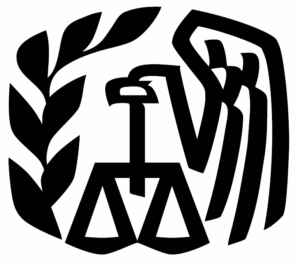Years ago, a segment of the libertarian movement resigned itself to simply trying to reform America’s welfare-warfare state way of life. Like conservatives did after the 1964 presidential election, when Democrat Lyndon Johnson smashed his GOP opponent Barry Goldwater, such libertarians threw in the towel on achieving freedom and just accepted the inevitability and the permanence of America’s welfare-warfare state way of life. Like conservatives, they have devoted their lives to reforming the welfare-warfare state with “public-policy prescriptions” and reform-oriented programs based on “choice.”
Over the years, such “public-policy prescriptions” and “choice” programs have included things like school vouchers, health-savings accounts, Social Security “privatization,” income-tax and IRS reform, selective foreign interventionism, surveillance reform, FISA Court reform, Patriot Act reform, drug-war reform, Pentagon reform, and CIA reform.
Have any of these reforms improved the plight of the American people living under welfare-warfare-state serfdom? Maybe, but not necessarily. School vouchers, for example, ended up more deeply embedding the state in private education, the exact opposite of what a genuinely free society is all about when it comes to education.
Another interesting aspect of this reform effort is the fact that some of the reformers have devoted their efforts to getting libertarian-leaning conservatives appointed as heads of welfare-state departments and regulatory agencies. The idea is that such people would bring “free enterprise” approaches and “choice” to welfare-state programs and the federal regulatory process.
An example: The Federal Trade Commission. If the reform segment of the libertarian movement were to get a libertarian-leaning conservative into the FTC, they would be ecstatic because he would be bringing “free enterprise” approaches and “choice” to the regulatory process.
Or let’s assume that a president were to appoint a libertarian-leaning conservative to head up the IRS. Again, the libertarian reform segment would be overjoyed because he would be bringing a free-enterprise approach and “choice” to tax deductions and other aspects of the IRS Code.
Or consider the possibility of a libertarian head of the Department of Health and Human Services.The libertarian reformers would say that he could bring free-enterprise perspectives and “choice” to the distribution of welfare.
A prime example of this reformist mindset was the regime of Chilean strongman Augusto Pinochet, the military dictator who, with the support of the U.S. national-security establishment, took power in a coup that ousted the democratically elected president of the country, Salvador Allende, a coup that left Allende dead. Pinochet had his goons round up around 60,000 innocent people and permitted them to torture, rape, and brutally abuse most of them. He also permitted his goons to murder or disappear some 3,000 of them.
To this day, some reform-oriented libertarians and virtually all conservatives extol and praise Pinochet and his regime. Why? Because he brought into his administration the so-called “Chicago Boys,” who were followers of the libertarian economist Milton Friedman.
In the minds of conservatives and these libertarian reformers, Pinochet brought “economic freedom” to Chile by appointing these Chicago Boys to head up and run the government’s welfare departments and regulatory agencies.
But it was nothing of the sort. The term “free enterprise” does not mean enterprise that is controlled and regulated by free-market advocates. It means enterprise that is free of government control and regulation. Genuine economic liberty necessarily entails the dismantling of departments, agencies, and programs that infringe on freedom. If all that we do is reform such infringements, we will not have achieved freedom.
Thus, what Pinochet acolytes refer to as “economic freedom” was really nothing more than central planning run by Friedman’s acolytes. Were the Chicago Boys better central planners and better regulators than Allende’s central planners and regulators? Undoubtedly. But it wasn’t freedom.
Think about slavery. Suppose slavery had been reformed with laws that provided for fewer lashings, shorter work hours, and better food. Suppose reformers had replaced brutal plantation managers with libertarian-leaning conservatives who brought free-market-oriented public-policy prescriptions and “choice” to slavery.
At best, such measures would have improved the lot of the slaves. But it wouldn’t have been freedom.
Ultimately, the American people — including libertarians — must do some serious soul-searching involving such questions as: What does it really mean to be free? What is the role of government in a free society? Does freedom involve a “freedom-oriented” and “choice” welfare-warfare state? Does freedom involve putting libertarian-leaning conservatives in charge of welfare departments and regulatory agencies?
Or do freedom and free enterprise instead entail the dismantling, repeal, termination, and abolition of welfare-warfare-state departments, regulatory agencies, and all other infringements on liberty?
The ultimate questions are: Should we give up hope on achieving a free society? If not, are we willing to call for the dismantling, not the reform, of all infringements on liberty? How bad do we want to be free in our lifetime?




